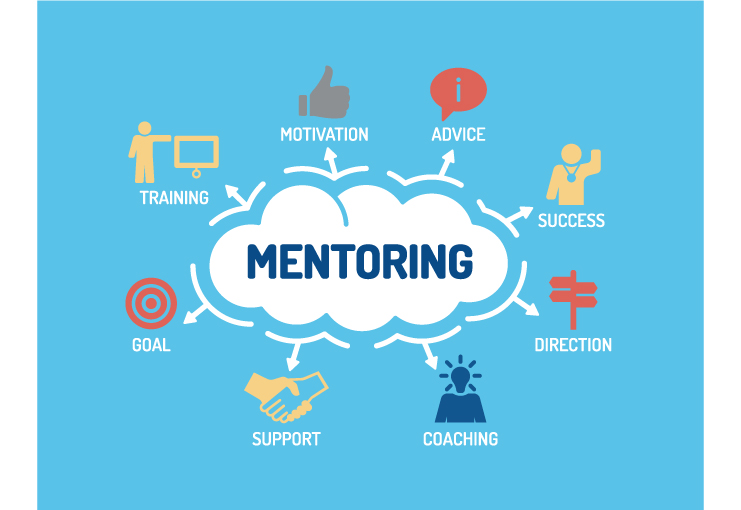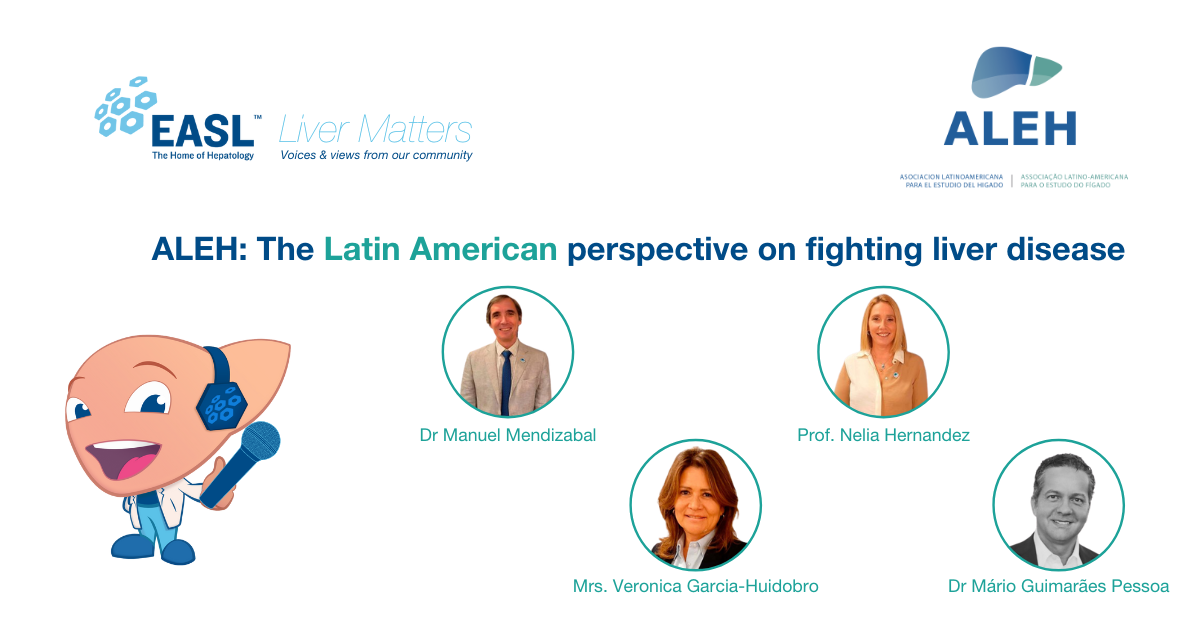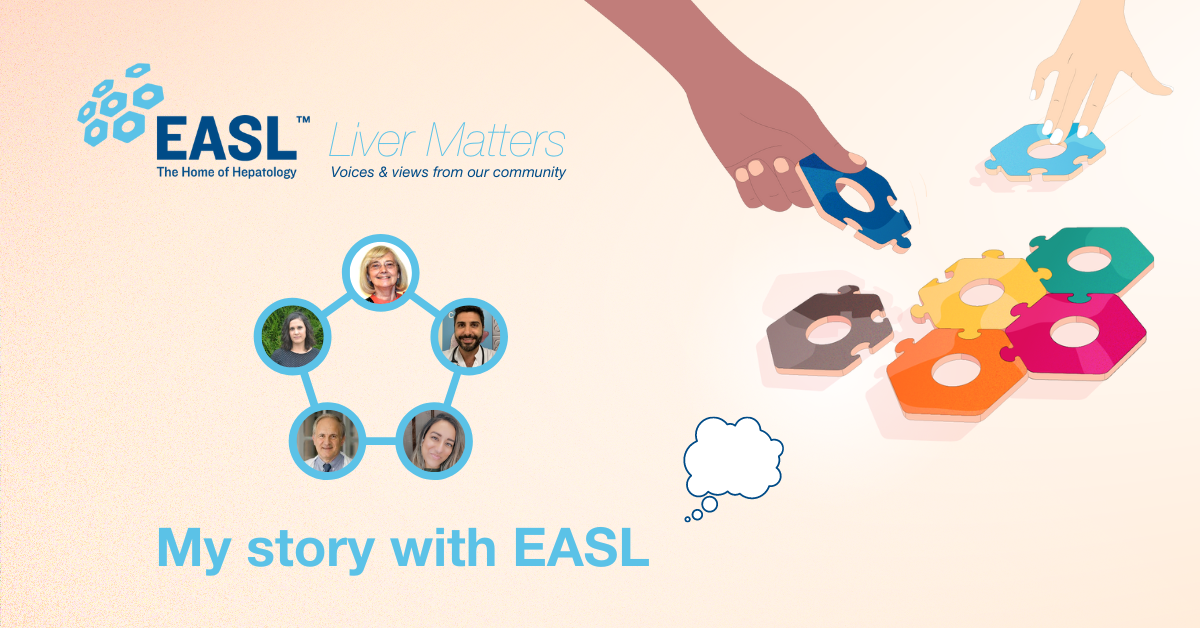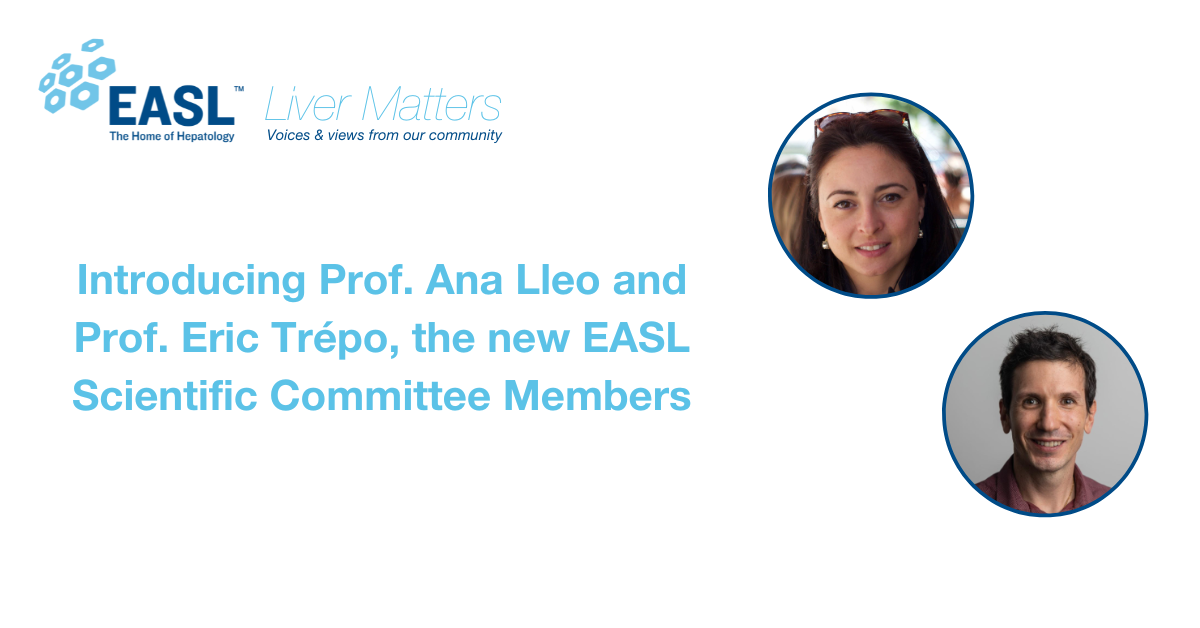Meet our 2021 mentees, Francesca Aprile & Iulia Minciună. Discover their portraits and read our top six reasons to benefit from a mentor.

Almost every great achiever has been inspired by a great mentor, at some point in their rise to excellence. In a dedicated portrait, EASL’s Treasurer, Prof. Francesco Negro recently reflected on this.
Mentorship is an extremely valuable role that more experienced professionals can take in the lives of younger colleagues who are seeking new levels of success.
Since 2013, the EASL Mentorship Programme has been facilitating mentor–mentee pairs, enhancing scientific exchange and developmental relationships. In this arrangement, a more experienced and knowledgeable hepatologist guides a younger colleague along a crucial stage of their career path.
This year, EASL is pleased to welcome two new very promising hepatologists to its Mentorship Programme.
Take a look at their profiles and find out what they expect from this prestigious programme.
Top six reasons to benefit from a mentor
1) Boosting your knowledge
Mentors are precious sources of knowledge. Because they have already been through experiences similar to yours, they can provide valuable advice and alert you to possible pitfalls.
2) Listening to objective opinions
Mentors are neither family nor friends (at least, to start out). By taking a relatively neutral role, they can offer objective opinions that they believe fit your circumstances best, without risking hurting your feelings.
3) Setting and moving towards goals
Mentors can help develop your career by helping you set new goals and providing clarity on how best to realise them.
4) Gaining new perspectives
Mentors can help you to overcome your limits. By helping you to understand who you are and what you want to become, they can accompany you as you develop your potential and explore how much further you can push the boundaries you initially set yourself.
5) Developing a network
Since your Mentors will usually have evolved in the same field as you, they can easily share with you their network of connections. By making new professional contacts, you increase your chances for interesting new opportunities.
6) Undertaking personal growth
Through your mentorship path, you will not only be guided on how to improve your career and reach your professional goals. You may also be amazed to master new skills and abilities that are transferable to other aspects of your life: professional mentorship may frequently go hand in hand with personal mentorship.
Francesca Aprile
Mentee of Prof. Andrea De Gottardi

I consider this project an opportunity to grow personally and professionally, allowing me to broaden the horizons of my career.
Tell us about yourself, Francesca.
I am Francesca Aprile, a 29-year-old doctor, currently pursuing a four-year residency in gastroenterology. Since the final years of my university education, I have been focusing on hepatology. I graduated in 2016 from La Sapienza University of Rome. My thesis was on the natural history of non-cirrhotic portal hypertension, paying specific attention to the development of and increase in sizes of varices.
After I graduated, I spent two months at Queen Elizabeth Hospital, in Birmingham, UK. There, I attended outpatient clinics and took part in a research project on porto-sinusoidal vascular disease and transplantation.
Later, I enrolled as a resident doctor in gastroenterology and, since then, I have worked in a 16-bed ward dedicated mostly to hepatic diseases and in outpatient clinics addressing cirrhotic and non-cirrhotic portal hypertension and the management of transplanted patients. I perform hepatic and splenic colour Doppler ultrasonography and Fibroscan, and I am currently training in endoscopy.
I have been an active EASL member since 2018 and I had the chance to attend very interesting Masterclasses where I learned a lot and I met the most renowned hepatologists.
Finally, I collaborated on some scientific articles in the field. I am actively interested in research, particularly in the management of portal hypertension complications.
Why did you decide to apply for the EASL Mentorship Programme?
I consider this project an opportunity to grow personally and professionally, allowing me to broaden the horizons of my career.
What do you expect to gain from this experience?
I expect a relationship based on trust and mutual respect, where I can be encouraged – with ongoing engagement – to achieve my goals and overcome my limits. I am sure that my mentor will help me address my weaknesses and show me how I can improve my projects and research ideas, in order to make my scientific career coexist with the clinical one.
Iulia Minciună
Mentee of Prof. Jean-François Dufour

I hope to receive guidance to better develop my PhD ideas, set new directions for it, and engage in some collaborative projects between centres.
Tell us about yourself, Iulia.
I am a fourth-year gastroenterology resident at the ‘’O. Fodor’’ Regional Institute of Gastroenterology and Hepatology in Cluj-Napoca, Romania.
Pursuing my interest in hepatology, I became an active member of the Liver Research Club of our Hepatology Department, I started working at the National Database of Hepatocellular Carcinoma (HCC), and I was appointed as study coordinator in the AURORA Clinical Trial, the only NASH trial available at our centre. Furthermore, I have participated in several EASL Schools where I got the chance to exchange ideas and enhance my knowledge with fellow colleagues and faculty members, and I won a UEG Clinical Fellowship at InselSpital, Bern. This perspective-changing opportunity enabled me to see how metabolic associated fatty liver disease (MAFLD) and HCC patients are managed in a resourceful centre, in terms of multiple clinical trials and with the availability of a liver transplantation facility.
Recently, I started my PhD aiming to analyse the role of endothelial dysfunction, neutrophil extracellular traps, and platelets in the pathophysiology and progression of non-alcoholic steatohepatitis (NASH). I’m looking forward to gaining further knowledge on the pathophysiology of MAFLD and HCC.
Why did you decide to apply for the EASL Mentorship Programme?
I am just at the beginning of my research path. As I am part of a centre with little experience in NAFLD pathology research, I do believe that with the help and coordination of an expert, I can fill this gap.
What do you expect to gain from this experience?
I hope to receive guidance to better develop my PhD ideas, set new directions for it, and engage in some collaborative projects between centres.
EASL wishes our new mentees the very best. We trust that their professional and personal expectations will be fulfilled through this programme.
How about you? Have you already been through a mentorship programme? What do you think the key factors for a successful mentor–mentee relationship are? Write your comments below.





Comments (0)